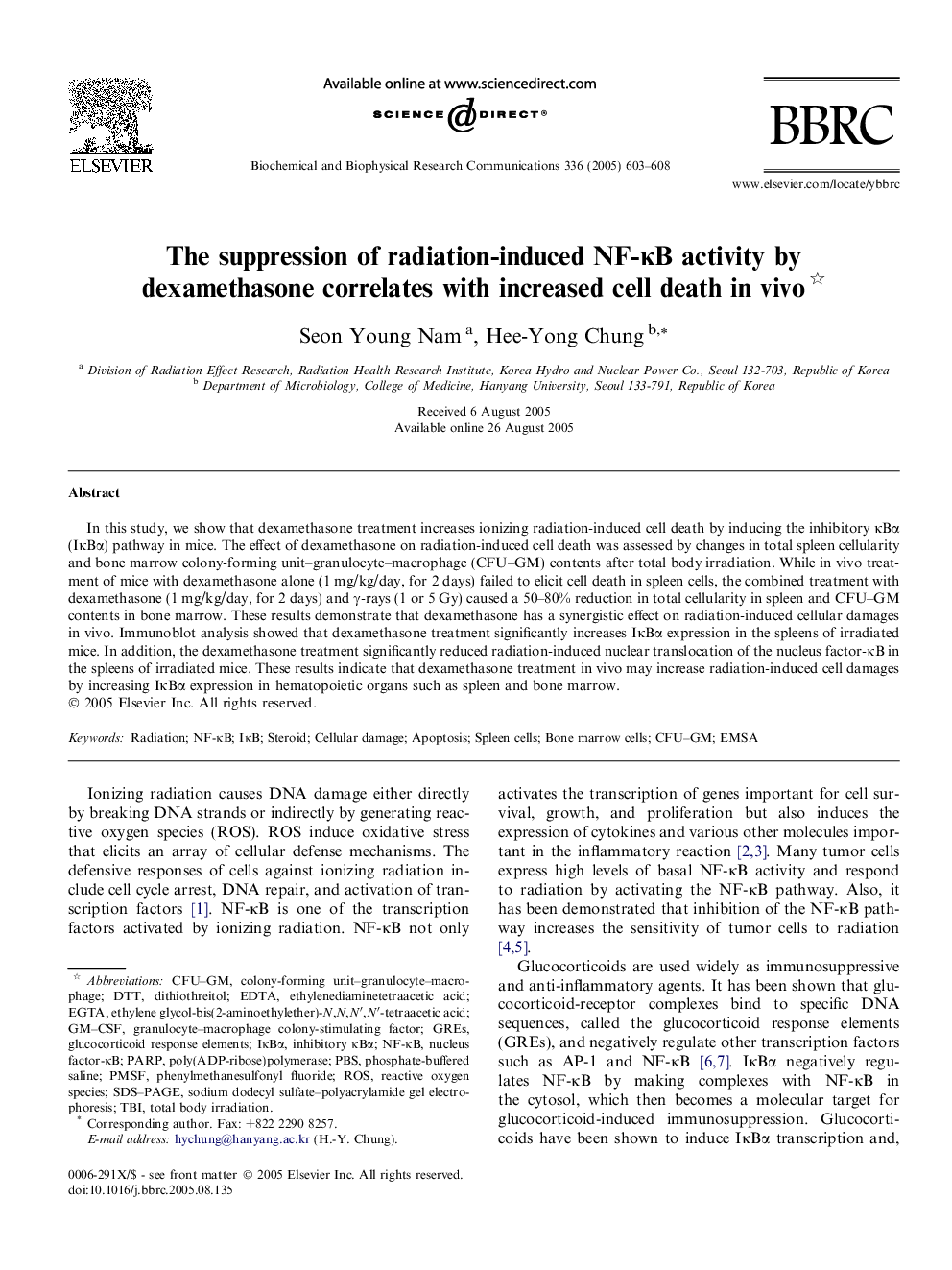| Article ID | Journal | Published Year | Pages | File Type |
|---|---|---|---|---|
| 10769597 | Biochemical and Biophysical Research Communications | 2005 | 6 Pages |
Abstract
In this study, we show that dexamethasone treatment increases ionizing radiation-induced cell death by inducing the inhibitory κBα (IκBα) pathway in mice. The effect of dexamethasone on radiation-induced cell death was assessed by changes in total spleen cellularity and bone marrow colony-forming unit-granulocyte-macrophage (CFU-GM) contents after total body irradiation. While in vivo treatment of mice with dexamethasone alone (1 mg/kg/day, for 2 days) failed to elicit cell death in spleen cells, the combined treatment with dexamethasone (1 mg/kg/day, for 2 days) and γ-rays (1 or 5 Gy) caused a 50-80% reduction in total cellularity in spleen and CFU-GM contents in bone marrow. These results demonstrate that dexamethasone has a synergistic effect on radiation-induced cellular damages in vivo. Immunoblot analysis showed that dexamethasone treatment significantly increases IκBα expression in the spleens of irradiated mice. In addition, the dexamethasone treatment significantly reduced radiation-induced nuclear translocation of the nucleus factor-κB in the spleens of irradiated mice. These results indicate that dexamethasone treatment in vivo may increase radiation-induced cell damages by increasing IκBα expression in hematopoietic organs such as spleen and bone marrow.
Related Topics
Life Sciences
Biochemistry, Genetics and Molecular Biology
Biochemistry
Authors
Seon Young Nam, Hee-Yong Chung,
